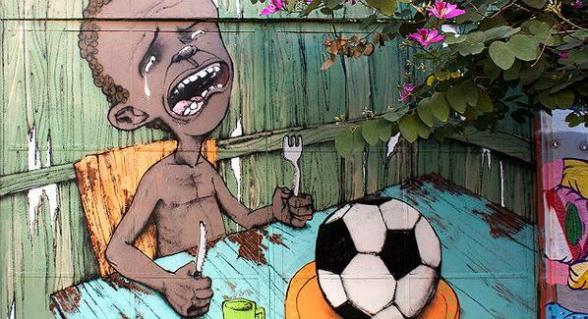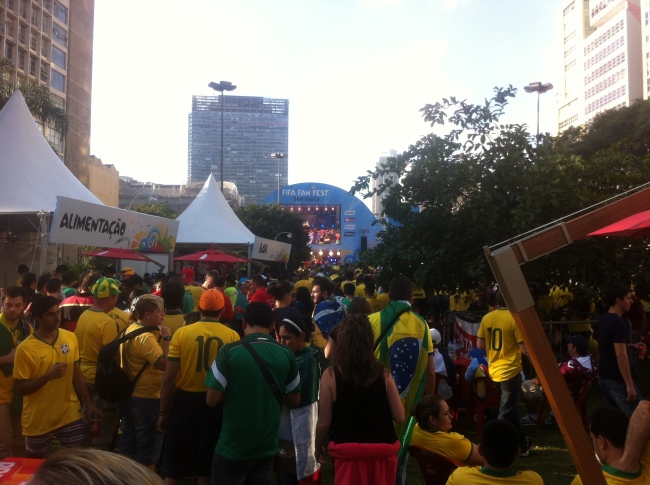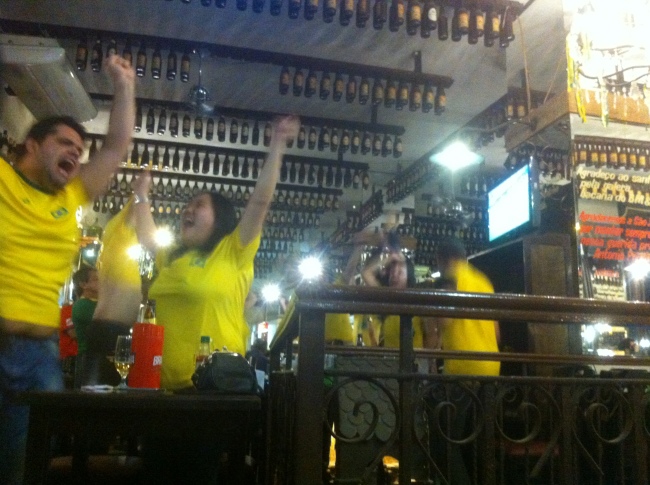
Between The Wars – Billy Bragg
Call up the craftsmen bring me the draughtsmen build me a path from cradle to grave and I’ll give my consent to any government that does not deny a man a living wage
*
I wrote the piece below in the Spring of 1985 as this song was released. I was 27.
*
Blackpool. Monday afternoon, a wet October, 1984
Six actors, a director and a writer meet each other in the lounge of the Pendale Hotel (just off the town map) and plan their assault on the Labour Party Conference : the largest collection of journalists to be found outside of a Fleet Street pub. Our mission: to explore their world, their obsessions. We have (valued possessions) press passes saying ‘Joint Stock’ pinned to our clothing, currently providing simple entry to the Winter Gardens. We are naive, optimistic, nervous, brave. We move in.

A fringe meeting upstairs from the bar is getting underway. Entrance is through a sea of leaflets thrusting at you from Nicaragua to the Kent coalfields. Inside, a large surreal Spanish galleon of a room is filling up. TV cameras at the front, lights. A sense of excitement. The speakers tonight are Livingstone, Benn & Scargill. I am looking for journalists. What do they wear? How do they talk? Who do they vote for? Why are they journalists? Will they even talk to me? I see two, identifiable by their press passes, and sit down next to them, a youngish woman and an older bespectacled man.
‘Hello,’ I offer boldly. ‘Can I talk to you?‘ They look at me. I launch in. ‘My name is Ralph Brown and I’m up in Blackpool with Joint Stock Theatre Group and we’re researching a play about journalists and we don’t know what it’s about yet, and can I talk to you?’ They are both from The Sunday Times, covering the conference – she is on the Insight team, he is the local man in Lancashire.
‘We set the agenda for this conference’ he claims, ‘Three weeks ago our front page said Kinnock would be in trouble on three fronts at this conference – the police, the miners, the local authorities. And that’s the way the conference will go.’ He evidently felt that this was the legitimate role of the paper, but perhaps feeling he had said too much started to move away. ‘Talk to Ros,’ he said, ‘she’s the expert on the miner’s strike.’ Could I meet him later I asked, at the Imperial Hotel perhaps? He smiled and nodded and moved off. The woman grabbed my arm. ‘Do you know who that is?’ she whispered. ‘He’s the one you want to talk to. That’s Michael Jones, political editor of The Sunday Times.’ I was going to have to be a little smarter over the course of the next three weeks. There was a stirring at the front of the hall. Scargill was entering – he timed it well, and the room erupted as their hero moved onto the platform. The feeling was quite extraordinary. Suddenly the press became noticeable leaning against walls, slouching in chairs, bored. Even so, notebooks were produced, pens from inside pockets, and attention brightened a little: the studied boredom of their poses couldn’t quite smother the sense of history.

Arthur Scargill, leader of the miner’s union at the Labour Party Conference, 1984
Later, the bar and foyer of the Imperial Hotel provided the true flavour of the conference. The place was full of journalists and politicians, and Joint Stock valiantly camoflauged within. Peter Hillmore (Observer) peered at my press pass suspiciously, exchanged a sentence with me and decided there were more important people to talk to. Sir Robin Day was decidedly the worse for wear and tottering on the steps with a young woman in black. I cornered Mick Costello, industrial editor of the Morning Star, smoking cigars and hobnobbing happily with capitalist comrades from the Telegraph and the Express. In fact there was an awful lot of hobnobbing going on. I think everyone there was drunk. I met Michael Jones again, he welcomed me with open arms, told me the play didn’t have a hope of understanding “the relationship between me and the office”, confessed to always having had ambitions to being one of the opinion-forming elite, and wished me the very best of luck, young man. ‘Of course, it’s very different when the Tories are here,’ a wobbling hack confided. ‘Last year it was wonderful though, Parkinson – you remember?‘ Little did he suspect that the Tories would provide the best story for a decade only ten days later.



It was Scargill’s week, undoubtedly. Adulated by conference, hated and adored by the press, ‘Coal Not Dole’ stickers everywhere and buckets being rattled at every door. Quite a time. We all had our adventures. Simon Curtis followed a Sun reporter for one afternoon hoping to catch some juicy bit or other, and was spotted trying to listen in on a conversation. I was finally confronted by this man, a stocky Scot, who told me that if my friend didn’t lay off he would receive a crack on the head. I talked to him. I was getting quite good at asking the right questions. He told me how he’d always wanted to be a policeman and had fallen into journalism at a Spencer Davis concert in Glasgow.
The Joint Stock method meant that observation was crucial. Each morning, we would present, one at a time, a character we had encountered the day before, with close attention to detail: accent, hand movements, figures of speech etc. Sometimes we would write notes. I found it easier and more accurate to rely on memory. If more than one of us had been there, we could present the group with a ‘scene’. We slowly discovered which questions and lines of conversation gave the best ‘results’, but it was always the unexpected, the surprising, which caught the imagination of the group. It was for me a wonderfully exciting way to work.

Robert Maxwell, Mirror owner in July 1984
My final memory of Blackpool was a Daily Mirror press conference called by Robert Maxwell to present a granny from Essex with a huge cheque for one million pounds for winning Mirror bingo. The scene was grotesque, and made its way into Deadlines – the play which resulted from this workshop – in all its surreal horror, with myself playing the elephantine Maxwell. I remember the poor woman standing there, with cameras clicking, TV arc lights, microphones and questions, a glass of champagne glued into her hand, a frozen smile on her bewildered face. She turned to Marge Proops (Mirror Women’s Page) standing next to her and asked if it was all right for her to have a sip. Later, Kathryn Pogson and I spoke to her daughter. ‘ You’re not from The Sun are you? We’ve been told not to answer any questions.’ We explained that we were actors doing research and suddenly the woman recognised Kathryn: ‘You were on TV weren’t you?’ She immediately relaxed and took us into her confidence. ‘They’ve been ever so good. We’ve been to four hotels in four days. We had the phone call saying we’d won, and they just said pack a suitcase. We left the washing in the machine.’ Her son was whimpering. ‘Shut up,‘ said his dad, ‘I’ve bought you loads of things today.’ They had just won a million pounds. Mirror men were gently ushering people to a photocall with the trams. ‘Let’s hope we’ve got more friends than enemies’ was the daughters final thought as Kathryn and I left for the Big Dipper.

The local Sheffield paper : me, Paul Jesson, a journalist, Stephen Wakelam, Tricia Kelly, Alan David
The company left for Sheffield, the heart of the miner’s strike, and spent two days at the local paper – the Morning Telegraph and the Sheffield Star the evening version, who shared the same office, again asking questions and listening. I suggested to the industrial editor (‘a close friend of Arthur‘ someone whispered) that being a local reporter was something of a luxury, being able to be accurate and honest and truthful. ‘No,‘ he said, ‘I just have to live here.’ It was becoming increasingly difficult to parry the obvious question: “What is the play about?” We really had no idea, and the people we talked to, especially the journalists, couldn’t accept this. ‘You’re going to expose us, aren’t you? All the drink and sex.’ And in truth we were beginning to behave more and more like journalists: finding ways of making people talk, being persistent, looking for angles.

The most famous photograph from the 1984-5 miner’s strike
Director Simon Curtis and I visited some picket lines at Maltby and Silverwood collieries and spent one afternoon talking to two miners who were on strike, one of whom, Jim, became a character in the play. Throughout the two and a half hour conversation, Simon had been fingering a five pound note in his pocket, preparing to give it to the fund before he left. ‘Do you have a collection?‘ he asked the young miner. ‘Sure, just give it to me, we’ll mek sure it gets t’ reght place.‘ Simon pulled out his note and offered it. They both looked at it. It was a twenty pound note. (more like a hundred pounds in today’s money). ‘Oh‘ said the miner. Simon’s eyes glazed over. ‘Oh thanks a lot‘ said the miner. Simon’s fingers released the note, and he smiled weakly. We drove off, Simon in some shock.
The company then moved to the hustle and bustle of London, Fleet Street, the TV Studios and radio stations. The journey was important. The people we’d talked to 200 miles north were filtered and made into ‘news’ down here in the capital. Stephen Wakelam (the writer) was particularly affected by this geographical change, and the play’s sweep covers the quiet of the South Yorkshire countryside to the claustrophobic newsrooms of London. My favourite place was BBC Newsnight. ‘We’re doing a play about the media’ I offered as an introduction to Howard, sleeveless-jerseyed, Guardian-reading type. He swung round in his typical journalists swing-round chair. ‘Media!’ He glared at me, managing to look totally harmless. ‘Don’t lump us in with the bloody Express, Mirror and Beano. This is a television news programme.’
 Presenter Peter Snow (right) had an SDP poster up in the room where he was working. I desperately wanted to ask him if it was his, but couldn’t find the words. It was very very difficult to ask journalists about their politics. They pretended they didn’t have any. Or they said ‘I’m nosy’ or ‘I’m an observer.’ Others were more approachable, notably those at The Express, where a considerable number of the writers are members of the Labour Party! I was devastated by this disclosure, although the Express journalists I spoke to found it totally normal : ‘It’s the same at the Mail, the Sun, the Telegraph. You’ve got to earn a living.‘ I suggested the two things might be incompatible. ‘I’ve never written a word against the Labour Party in twelve years on the Express.’ The man seemed proud of this, as if his principles were still intact. Fiona Millar, one of the few women on the paper had an even worse situation, surrounded by pin-ups, being given the Royal stories or the animal stories because of her gender. ‘My generation is terribly disappointed in the profession we’ve joined,‘ she told me. She is in her late twenties, and moved from the local paper to Fleet Street just as it was going down the drain : bingo, tits and circulation wars. She was consoled by the fact that the Express was ‘a writer’s paper’ rather than a subeditor’s paper. Subeditors – the back bench – are a strange group of men (invariably) who sift the paras, reorganise the stories, and in many cases rewrite according to the paper’s politics.
Presenter Peter Snow (right) had an SDP poster up in the room where he was working. I desperately wanted to ask him if it was his, but couldn’t find the words. It was very very difficult to ask journalists about their politics. They pretended they didn’t have any. Or they said ‘I’m nosy’ or ‘I’m an observer.’ Others were more approachable, notably those at The Express, where a considerable number of the writers are members of the Labour Party! I was devastated by this disclosure, although the Express journalists I spoke to found it totally normal : ‘It’s the same at the Mail, the Sun, the Telegraph. You’ve got to earn a living.‘ I suggested the two things might be incompatible. ‘I’ve never written a word against the Labour Party in twelve years on the Express.’ The man seemed proud of this, as if his principles were still intact. Fiona Millar, one of the few women on the paper had an even worse situation, surrounded by pin-ups, being given the Royal stories or the animal stories because of her gender. ‘My generation is terribly disappointed in the profession we’ve joined,‘ she told me. She is in her late twenties, and moved from the local paper to Fleet Street just as it was going down the drain : bingo, tits and circulation wars. She was consoled by the fact that the Express was ‘a writer’s paper’ rather than a subeditor’s paper. Subeditors – the back bench – are a strange group of men (invariably) who sift the paras, reorganise the stories, and in many cases rewrite according to the paper’s politics.

The Sun was more difficult. We trooped up to the office and were told to wait by the door. We huddled there, feeling like intruders. A nervous face told us about The Sun glancing over his shoulder now and again. One of us was escorted to the toilet and back. We were not allowed to talk to any journalists. The face we were talking to had a plastic smile which it kept putting on to reassure us, and only succeeded in totally unnerving us. ‘We are a family newspaper. We never print anything unless it’s checked. We write for an average reading age of eight.‘ He did, however, tell us the name of the cabinet minister whom the whole of Fleet Street knew was fucking small boys. And somehow, this one rather sordid point was a believable oasis in the desert of his insincerity.

And so to the Tories. We took it in turns to visit the Tory Conference in Brighton (only had two press passes) and Tricia Kelly and I found ourselves on the train down just hours after an IRA bomb had wrecked the Grand Hotel. There was security everywhere. The atmosphere inside the conference hall was extraordinary. Resilience, survivors. Thatcher got an emotional standing ovation just for being there. Tricia and I felt like enemies of the people in the midst of the mob, protected by the legitimate neutrality of our press passes. It meant we didn’t have to applaud. We could look cool and detached and professional. This was a relief. Thatcher was finally introduced as ‘a great statesman’ and she spoke for the whole hall about Tebbit’s bravery, property, owners and earners, and got a massive, absurd standing ovation at the end. Tricia made our way to the door and stopped to watch this display of political football hooliganism. We were ushered out by a rather embarrassed man, as if this was a private Tory moment not to be witnessed by the unfaithful.
 Grand Hotel, Brighton, the morning after an IRA bomb, October 1984
Grand Hotel, Brighton, the morning after an IRA bomb, October 1984
We moved out onto the beach. The Grand Hotel had a huge hole knocked out of it, the beach was roped off, police were everywhere. Earlier, I had tried to have a few words with the Observer, one of our contacts. ‘Haven’t got time,‘ he said, rushing away. ‘Best story for twenty-five years.‘ There were journalists everywhere. Every paper and TV station had quintupled its Brighton staff. By now, we Joint Stockers were behaving like journalists ourselves, moving towards huddles of people instinctively for titbits trading information, becoming strangely distanced from the event. The process was not dissimilar : the workshop, the story.
I remember the feeling standing on Brighton beach, so clearly. An exhilarating sense of history. It was all happening around me: the strike, the conferences, the bomb. I felt at the centre of the universe.
*

Jenny Stoller, Tricia Kelly and Amelda Brown in Caryl Churchill’s ‘Fen’
*
Summer 2017 – Brooklyn
The piece above was the last chapter in The Joint Stock Book, published by Methuen in 1997 and reprinted here for information. I do not claim copyright. I think the book is now out of print. Subtitled The Making Of A Theatre Collective, the book is a tribute to the working method of Joint Stock, a unique theatre collective in the UK as I was starting out in the 1980s. It started around 1974 and had built a formidable reputation for itself as a producing house for new, often devised work. The company operated as a self-managing collective with only one permanent member of staff, the administrator, everyone else was invited to meetings and made decisions, on a collective level. I met a lot of very good people over the three years that I was involved with Joint Stock, including my next girlfriend, Rita Wolf, who had been in Borderline written by Hanif Kureishi and was thus on the collective. The book contains contributions from members of the collective about the work of the company, ranging from Max Stafford-Clark to Roger Lloyd-Pack to Bill Gaskill to Caryl Churchill to Kenny Ireland to Danny Boyle to Miriam Margoyles to Pauline Melville. It remains for me the finest way to create a play, both as an actor and as a writer. I was lucky enough to do both – the play Sanctuary came two years later in 1987 – Deadlines premiered in Sheffield in February 1995 before touring the UK. Both plays were written about and for a community : journalists and homeless youth. Later in 1985 Jane Thornton wrote Amid The Standing Corn about the miner’s wives for Joint Stock. She is from Yorkshire where my dad lives now (married to a Barnsley lass, dear Beryl) and Jane is also married to a Yorkshireman John Godber who is instrumental in my working life (A Clockwork Orange, Up’n’Under). A strain of decency and pride running through the county. I think the most rewarding part of both Deadlines and Sanctuary for me were the nights when the community came to see the play they’d helped create. When the journalists at the Sheffield Star came to the Crucible Theatre, sitting alongside striking miners and their familes. When the homeless familes and charities like Centrepoint London came to The Drill Hall for a benefit one night to see themselves represented onstage. The highest form of emotion. Lucky to have experienced it twice. To think that Thatcher had called the National Union of Mineworkers ‘the enemy within‘ still makes me enraged to a level which frightens me to this day. Turbulent times. A historic defeat. La lotta continua. Here’s Billy.



























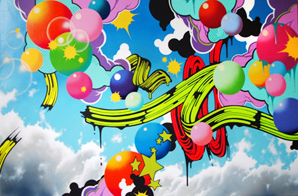
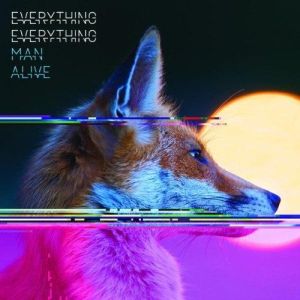 bought the LP immediately it came out a few months later in 2010 and wasn’t disappointed by my own high hopes – Man Alive is, for me the single greatest record of the 21st century so far, a record that is so breathtakingly original that to compare it with Amy Winehouse’s Back To Black – great though that is – is a pointless comparison. The LP that comes close is Kanye West’s Yeezus for musical boldness and pointers to the future, and of course there’s been interesting electronica from Jon Hopkins and Burial, Four Tet, J. Dilla and Flying Lotus, some beautiful music from Sigur Ros, Arcade Fire, John Legend & Vampire Weekend and many more indeed, insert your favourite here, but Man Alive is head and shoulders more inventive more original and more exciting a piece of work than any of the above. Apart from maybe Yeezus….
bought the LP immediately it came out a few months later in 2010 and wasn’t disappointed by my own high hopes – Man Alive is, for me the single greatest record of the 21st century so far, a record that is so breathtakingly original that to compare it with Amy Winehouse’s Back To Black – great though that is – is a pointless comparison. The LP that comes close is Kanye West’s Yeezus for musical boldness and pointers to the future, and of course there’s been interesting electronica from Jon Hopkins and Burial, Four Tet, J. Dilla and Flying Lotus, some beautiful music from Sigur Ros, Arcade Fire, John Legend & Vampire Weekend and many more indeed, insert your favourite here, but Man Alive is head and shoulders more inventive more original and more exciting a piece of work than any of the above. Apart from maybe Yeezus…. It was a great collective effort which culminated in election day – I spent time outside three different polling booths, then knocked people up, getting our vote out, then once the polls closed fielding some calls as local Press Officer – one from ITN News – and I was at home. I said “we’re quietly confident” – I just made it up – and that became the tag-line for the night on the TV. We had no idea if we’d won. I went down to the count at The Brighton Centre at around midnight, place was buzzing, I had a Press Pass and talked to all the journalists there about IF Caroline wins, who she will
It was a great collective effort which culminated in election day – I spent time outside three different polling booths, then knocked people up, getting our vote out, then once the polls closed fielding some calls as local Press Officer – one from ITN News – and I was at home. I said “we’re quietly confident” – I just made it up – and that became the tag-line for the night on the TV. We had no idea if we’d won. I went down to the count at The Brighton Centre at around midnight, place was buzzing, I had a Press Pass and talked to all the journalists there about IF Caroline wins, who she will talk to and for how long, then a Press Conference on the top floor, then we waited and watched. It took forever – til dawn, but then, the count, the result, the release of tension, victory at 7am in the morning. I ran down to meet Caroline at the door of the counting room and three of us with passes escorted her up the stairs, through the throng of media, cameras in our faces, flashbulbs popping, it was the most rock-star moment I’ve ever had frankly and it was a political victory. Extraordinary. Upstairs the press interviews, the TV excitement, then afterwards the Green gang on the pavement outside, the celebration and then the real work began.
talk to and for how long, then a Press Conference on the top floor, then we waited and watched. It took forever – til dawn, but then, the count, the result, the release of tension, victory at 7am in the morning. I ran down to meet Caroline at the door of the counting room and three of us with passes escorted her up the stairs, through the throng of media, cameras in our faces, flashbulbs popping, it was the most rock-star moment I’ve ever had frankly and it was a political victory. Extraordinary. Upstairs the press interviews, the TV excitement, then afterwards the Green gang on the pavement outside, the celebration and then the real work began. I was staying in the swish elegance of the G Hotel. A 15-minute walk took me into the pubs, the pubs the pubs of Galway. Are there better pubs than these? Can it be true? One after another they suck you in with their brightly coloured exteriors, their fiddle music and soft southern voices, their velvety pints of Guinness and piles of triangular cut sandwiches, free for drinkers. Dear Frank O Sullivan gave me the guided tour. More than once Galway reminded me of Brighton – the music scene is thriving, the people are laid-back and friendly, it’s artistically alive, racially and sexually mixed and international yet small and manageable. Brighton has more pubs per square mile than anywhere in the UK and more than once I heard it said that “Galway is the graveyard of ambition, the place is full of dreamers and drinkers…”
I was staying in the swish elegance of the G Hotel. A 15-minute walk took me into the pubs, the pubs the pubs of Galway. Are there better pubs than these? Can it be true? One after another they suck you in with their brightly coloured exteriors, their fiddle music and soft southern voices, their velvety pints of Guinness and piles of triangular cut sandwiches, free for drinkers. Dear Frank O Sullivan gave me the guided tour. More than once Galway reminded me of Brighton – the music scene is thriving, the people are laid-back and friendly, it’s artistically alive, racially and sexually mixed and international yet small and manageable. Brighton has more pubs per square mile than anywhere in the UK and more than once I heard it said that “Galway is the graveyard of ambition, the place is full of dreamers and drinkers…” Perhaps I should mention too, that Brighton and Galway are places where people actually choose to live because they are great places, and The Graveyard Of Ambition is always said in Galway with an undercurrent of pride – they don’t want to be anywhere else. Balls to ambition. This is of course hugely tempting, but perhaps not quite yet. I did hear the universe nattering away eventually, for here I am in New York City having decided to shake things up a bit and escape from the satisfied life for a new experience. To seek out new life, new civilisations. To boldly go to where people are allowed to split an infinitive. Everything Everything spoke to that part of me that is always agitating, looking for change both without and within. They still speak to me.
Perhaps I should mention too, that Brighton and Galway are places where people actually choose to live because they are great places, and The Graveyard Of Ambition is always said in Galway with an undercurrent of pride – they don’t want to be anywhere else. Balls to ambition. This is of course hugely tempting, but perhaps not quite yet. I did hear the universe nattering away eventually, for here I am in New York City having decided to shake things up a bit and escape from the satisfied life for a new experience. To seek out new life, new civilisations. To boldly go to where people are allowed to split an infinitive. Everything Everything spoke to that part of me that is always agitating, looking for change both without and within. They still speak to me.

